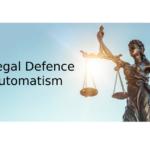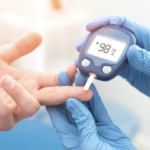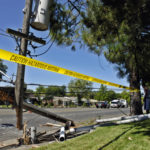‘Sexsomnia’ and the Legal Defence of Automatism in New South Wales

A Sydney man has been found not guilty of a string of sexual offences against children after raising evidence that he was asleep and suffering from ‘sexsomnia’ during the incidents, and that he was therefore acting involuntarily – a requirement for the legal defence of automatism in New South Wales.
The verdict has raised more than a few eyebrows, with the public and mainstream media questioning how a person could commit the alleged acts whilst asleep.
The Case
32-year old Aaron Mendis pleaded not guilty to 15 criminal offences, including 11 counts of having sexual intercourse with a child under 16 years old, and was tried by a judge-alone in Sydney’s Downing Centre District Court. The allegations involved three young boys.
There was no dispute that the acts constituting the offence occurred, but evidence was raised during the trial that he was asleep when the conduct occurred.
One expert witness gave evidence that there was “no doubt” Mr Mendis suffered from a condition known as somnophilia, whereby a person can have sex while asleep, while another said it was “hard to rule out” that he was indeed asleep at the time of the acts.
Evidence was also heard that that 96% of sufferers completely forget having fallen asleep and “often regret (it) when they realise the behaviour”. In the present case, there was evidence that Mr Mendis exhibited “shock” after the incidents and at one time stated, “sorry, I was asleep”.
One of the complainants testified that Mr Mendis was indeed “sleeping, quiet and talking” during an incident, with “his eyes… closed”.
There was also character testimony from multiple former partners to the effect that Mr Mendis showed no inclination of a sexual attraction towards children.
The prosecution failed to elicit evidence to prove that Mr Mendis was awake and therefore acted voluntarily at the time of the incidents, and His Honour Judge Phillip Mohany therefore concluded that the prosecution had failed to prove the requirement mental element of the offence (voluntariness) beyond a reasonable doubt.
“There were no suggestions that he was fully conscious when the incidents occurred, he had no recall of the events and his behaviours when confronted were typical for genuine sexsomnia patients”, Judge Mahoney remarked.
“Having regard to the whole of the evidence, I find that it was a reasonable possibility at the time of each alleged offence that the accused was asleep and suffering from sexsomnia and therefore, the acts carried out were not either willed or voluntary acts of the accused,” his Honour added, returning not guilty verdicts for all of the charges.
The Legal Defence of Automatism in New South Wales
A person is not guilty of a criminal offence in New South Wales if the acts constituting the offence were committed involuntarily; whether while asleep or otherwise unconscious, while having a ‘fit’ or otherwise.
This is sometimes referred to as the defence of automatism, or the quasi-defence of automatism – as while it is not a formal legal defence, it acts as such as the prosecution’s failure to disprove it will lead to a verdict of not guilty.
To be voluntary, an act must be performed with the consciousness of the nature of the act and in exercise of a choice to do an act of that nature.
An act is presumed to be voluntary unless a case for automatism is raised by the defence to the standard of ‘reasonable possibility’. Once raised, the prosecution must disprove automatism to the standard of beyond reasonable doubt.
Automatism can be broken down into ‘sane’ and ‘insane’ automatism.
Sane automatism
Sane’ automatism refers to states of automatism that are brought about by factors other than an infirmity of the mind (usually a mental or cognitive impairment).
Sane automatism is sometimes said to refer to states of automatism caused by ‘external’ factors as opposed to ‘internal’ factors of a person. Some examples include: concussion, drug-induced psychosis, transient disassociation due to emotional trauma and of course, hypoglycemia as a result of insulin medication.
However, this notion of ‘external’ causes is not always straightforward. For example, both sleepwalking and epilepsy have been found to be forms of sane automatism, despite being clearly linked to individual physiology.
Some distinctions made regarding sane and insane automatism can also appear rather arbitrary. For example, as already noted, hypoglycemia (low blood sugar) as a result of insulin medication can constitute in a successful argument of sane automatism, however hyperglycemia (high blood sugar) as a result of not taking medication will not.
If successfully raised, the quasi-defence of sane automatism would result in an element of the offence failing to be proven and result in an acquittal.
Insane automatism
If the cause of automatism is said to originate from an infirmity of the mind the condition of ‘insane automatism’ will be raised and the defendant’s case becomes one of establishing an insanity defence.
Under section 28(1) of the Mental Health and Cognitive Impairment Forensic Provisions Act 2020 a person is not criminally responsible for an offence if:
…at the time of carrying out the act constituting the offence, the person had a mental health impairment or a cognitive impairment, or both, that had the effect that the person –
(a) did not know the nature and quality of the act, or
(b) did not know that the act was wrong (that is, the person could not reason with a moderate degree of sense and composure about whether the act, as perceived by reasonable people, was wrong).
This defence must be proven by the accused to the standard of ‘on the balance of probabilities’ in order to result in an acquittal.
What constitutes a ‘mental health impairment’ is outlined under section 4 of the Act requiring that:
- the person has a temporary or ongoing disturbance of thought, mood, volition, perception or memory, and
- the disturbance would be regarded as significant for clinical diagnostic purposes, and
- the disturbance impairs the emotional wellbeing, judgment, or behaviour of the person.
A list of clinically relevant mental disorders is listed under the Act and includes mood disorders and psychotic disorders, but not drug intoxication or addiction.
Section 5 of the Act defines cognitive impairment, requiring that:
- the person has an ongoing impairment in adaptive functioning, and
- the person has an ongoing impairment in comprehension, reason, judgment, learning or memory, and
- the impairments result from damage to or dysfunction, developmental delay, or deterioration of the person’s brain or mind.
A list of conditions which result in cognitive impairment is also provided in the Act encompassing intellectual disabilities, dementia, acquired brain injuries and autism spectrum disorder.
Unlike sane automatism, establishing insane automatism (and therefore a defence of mental health impairment or cognitive impairment) would result in a person being dealt with under the provisions of the Mental Health Act 2007 (NSW), which may involve involuntary detention in a mental health facility.
Finally, if the case against the accused is one of murder further possibilities arise. For example, under section 23A of the Crimes Act 1900 states that a person who would otherwise be guilty of murder could be convicted of manslaughter if:
- at the time of the acts or omissions causing the death concerned, the person’s capacity to understand events, or to judge whether the person’s actions were right or wrong, or to control himself or herself, was substantially impaired by a mental health impairment or a cognitive impairment, and
- the impairment was so substantial as to warrant liability for murder being reduced to manslaughter.
Going to court?
If you are accused of a criminal offence, call Sydney Criminal Lawyers anytime on (02) 9261 8881 for expert advice regarding the strengths and weaknesses of the prosecution’s allegations, whether any legal defences may be available and the best way forward, and secure the services of a specialist criminal defence law firm who will fight for the best possible outcome.






